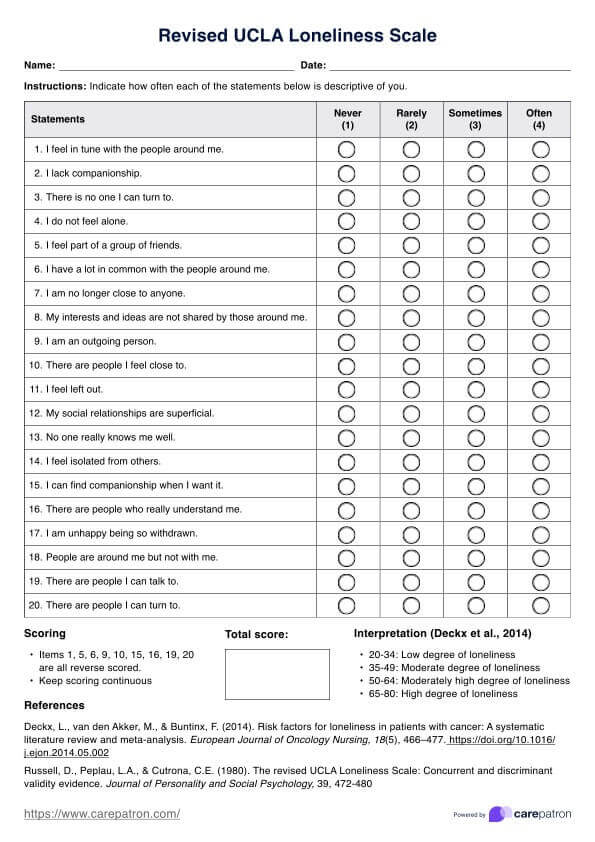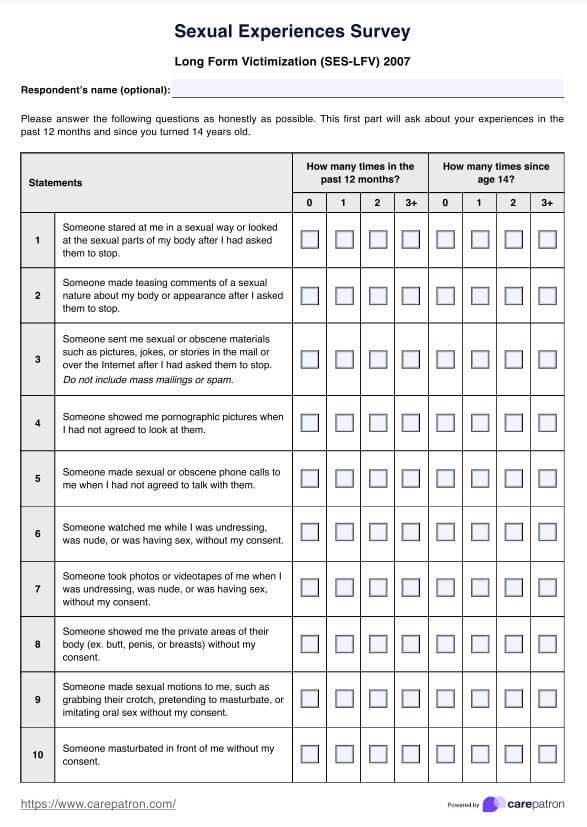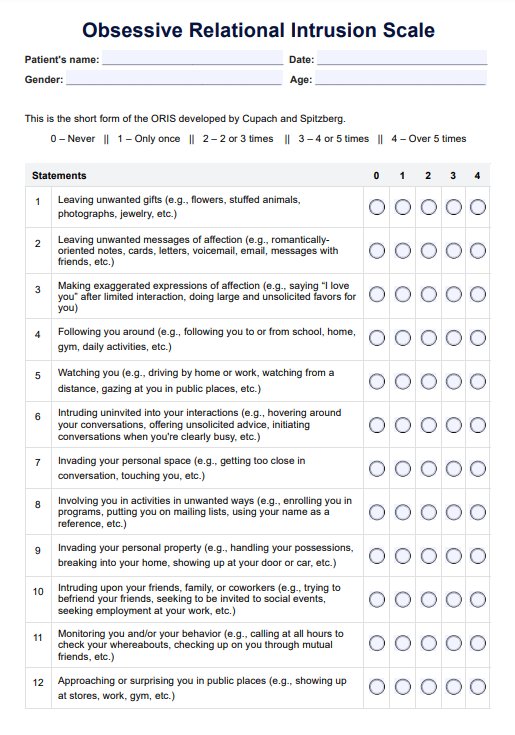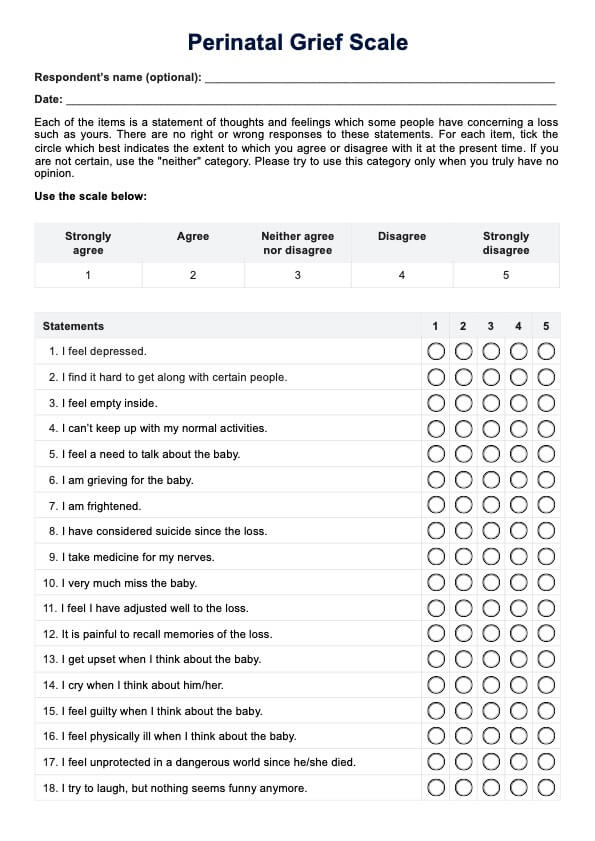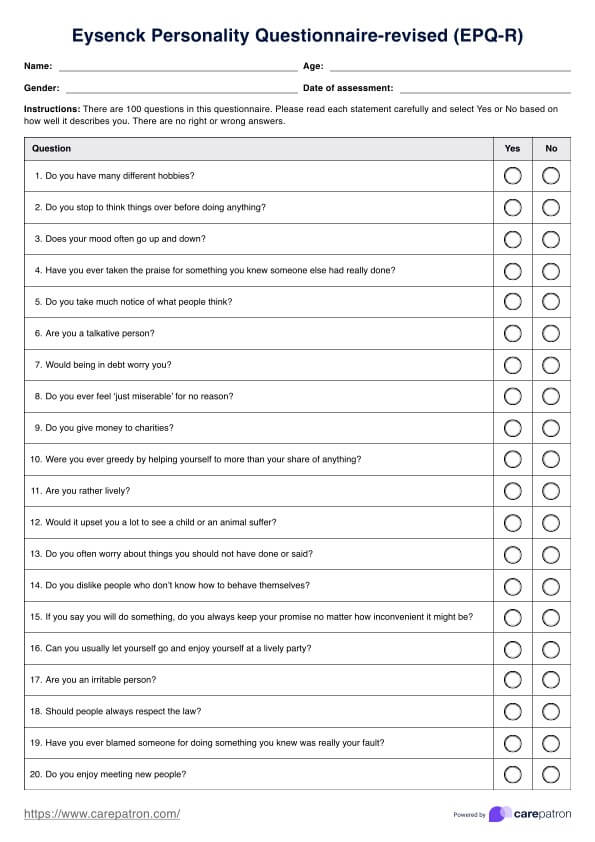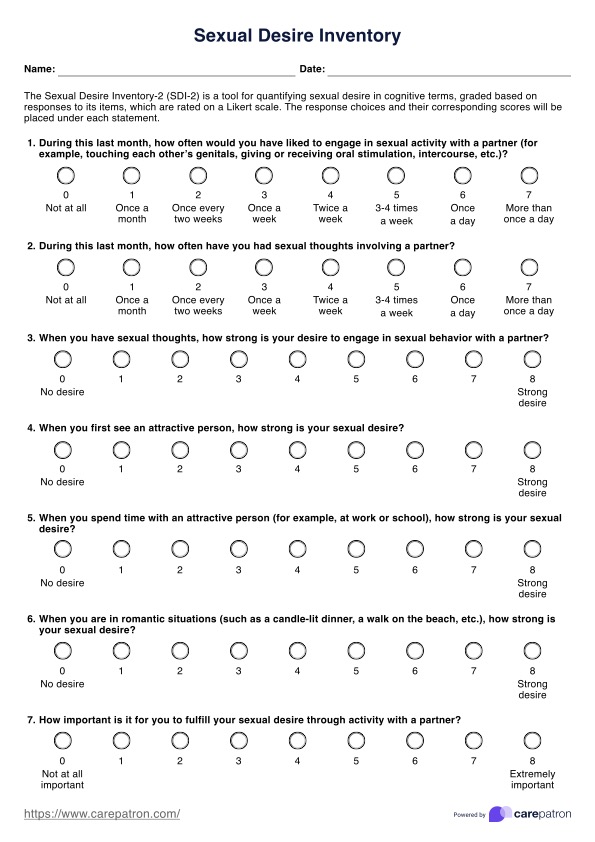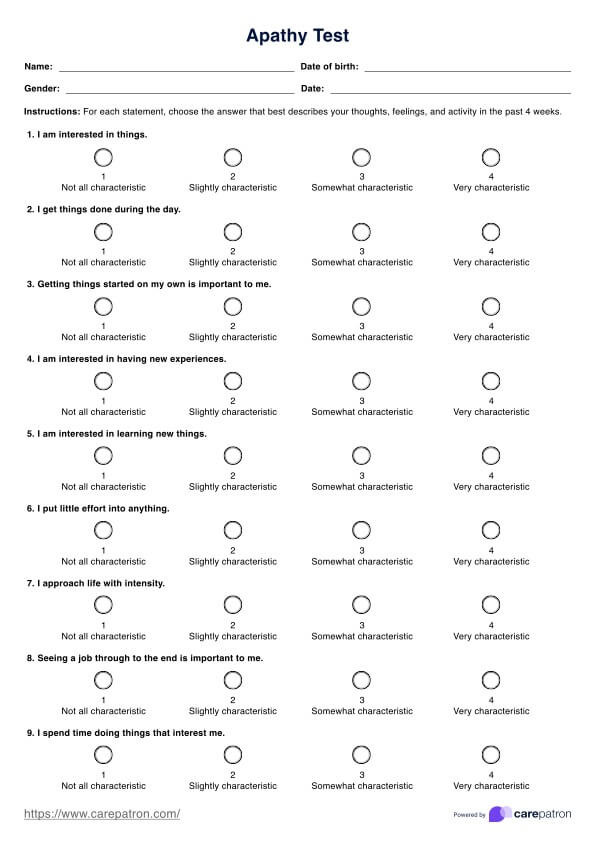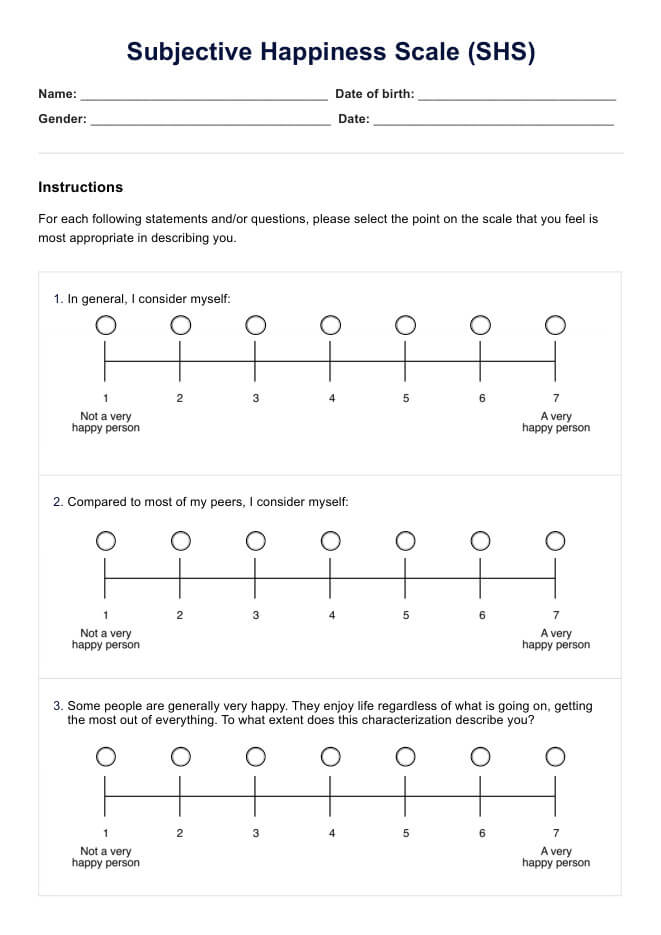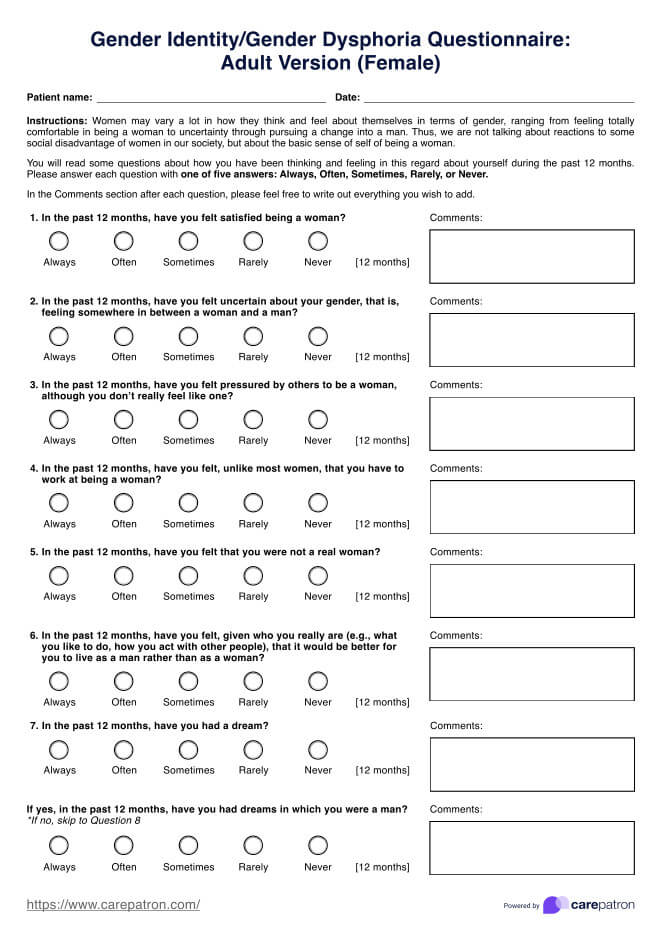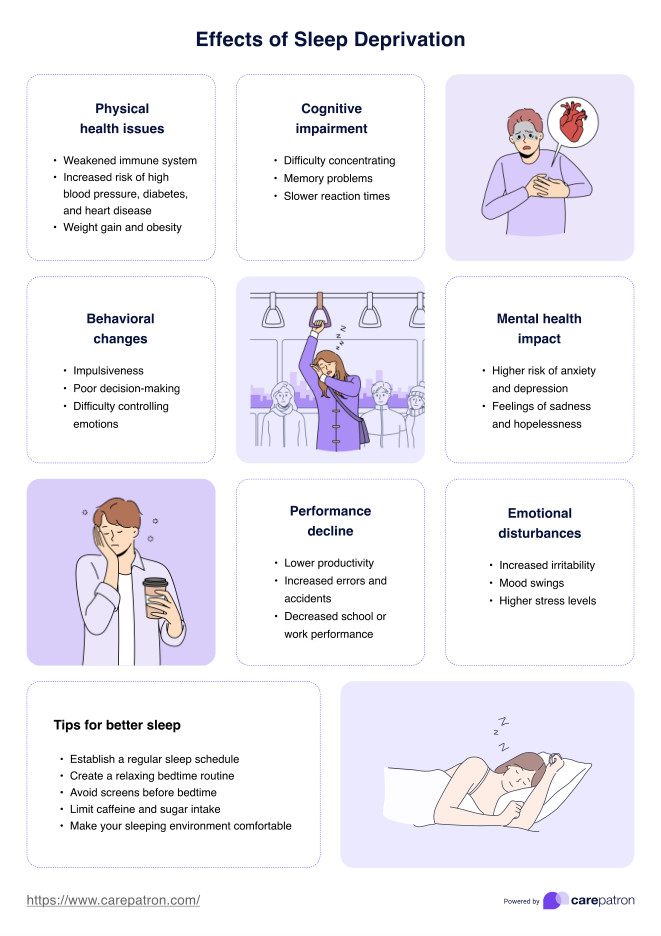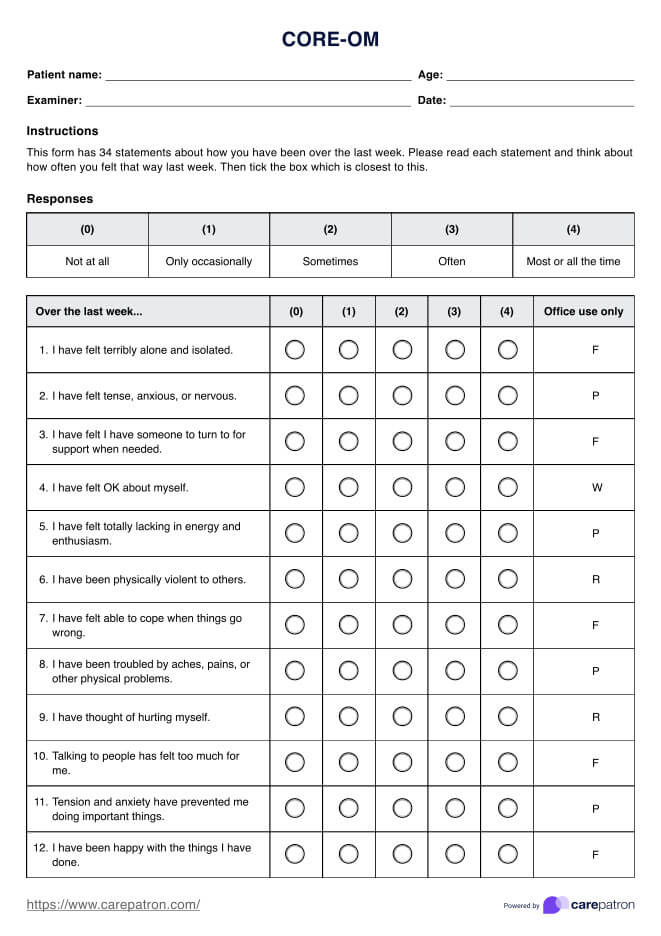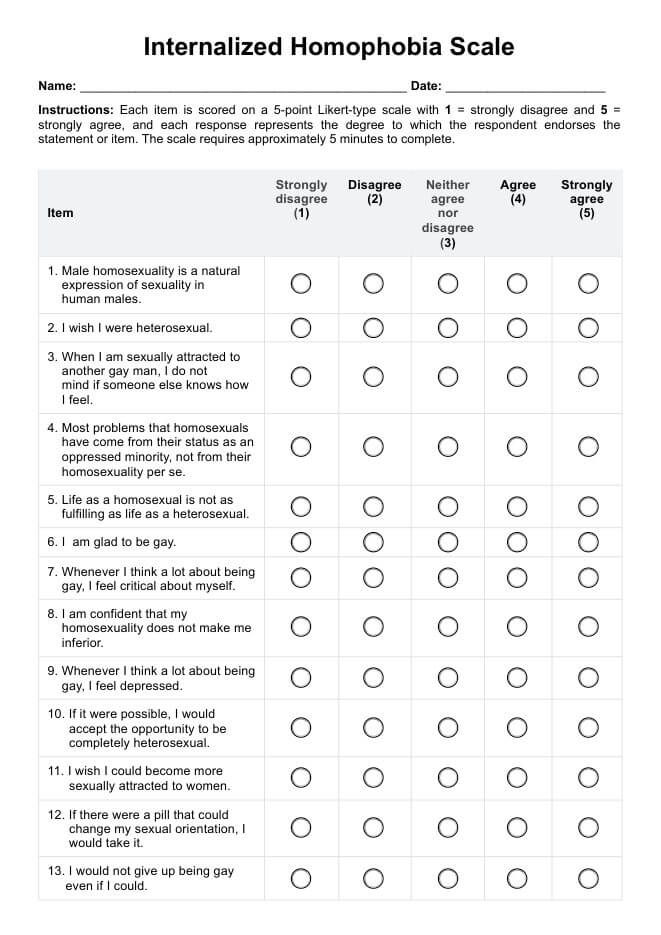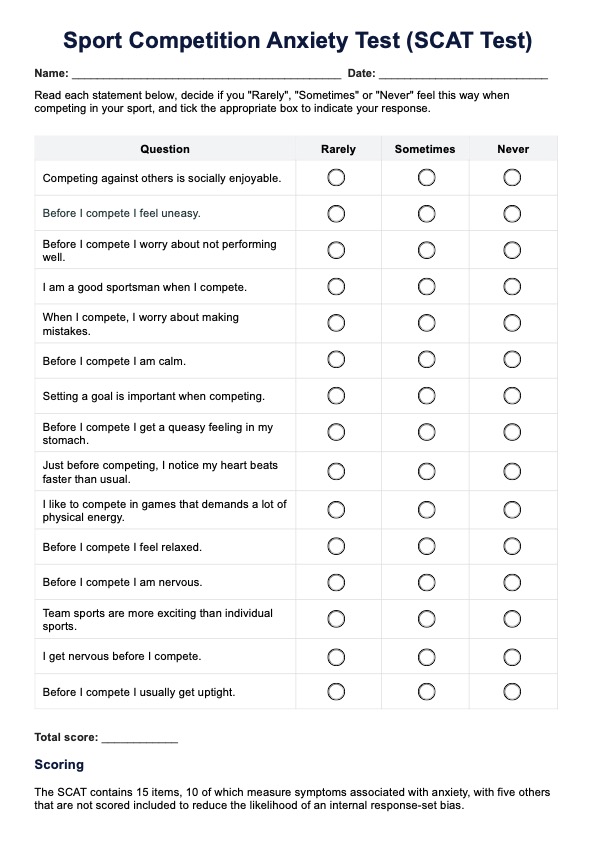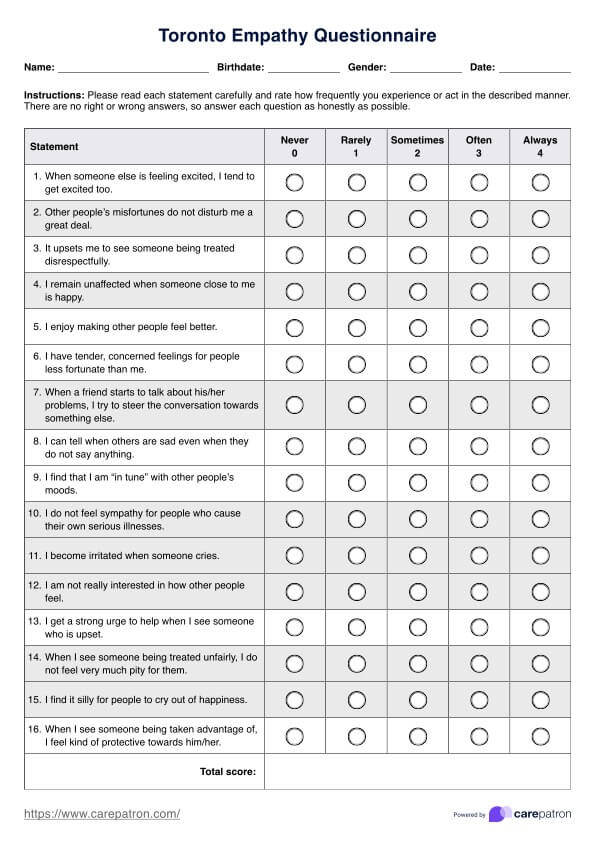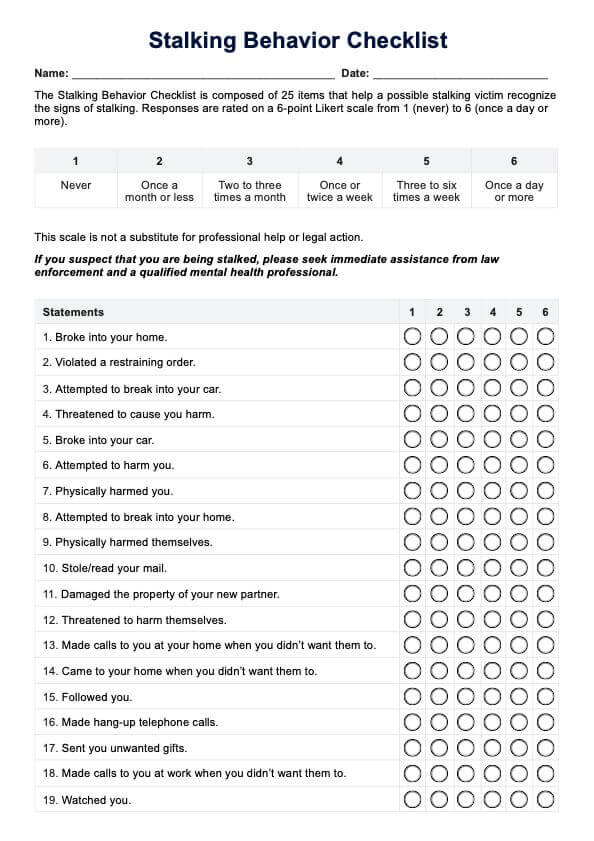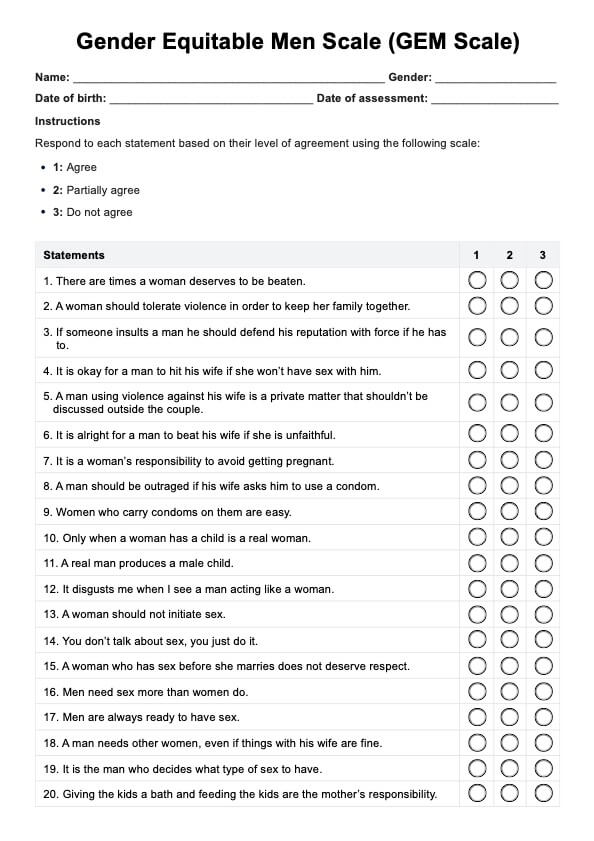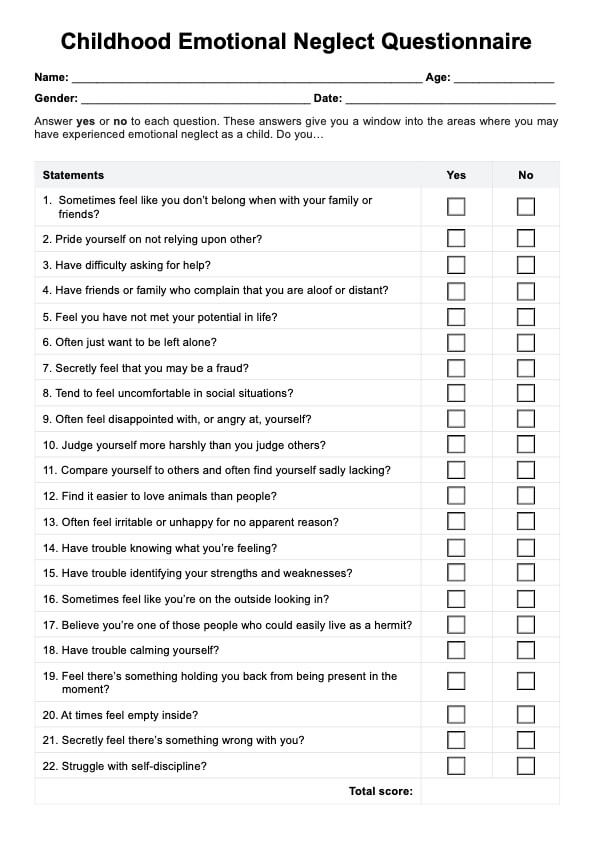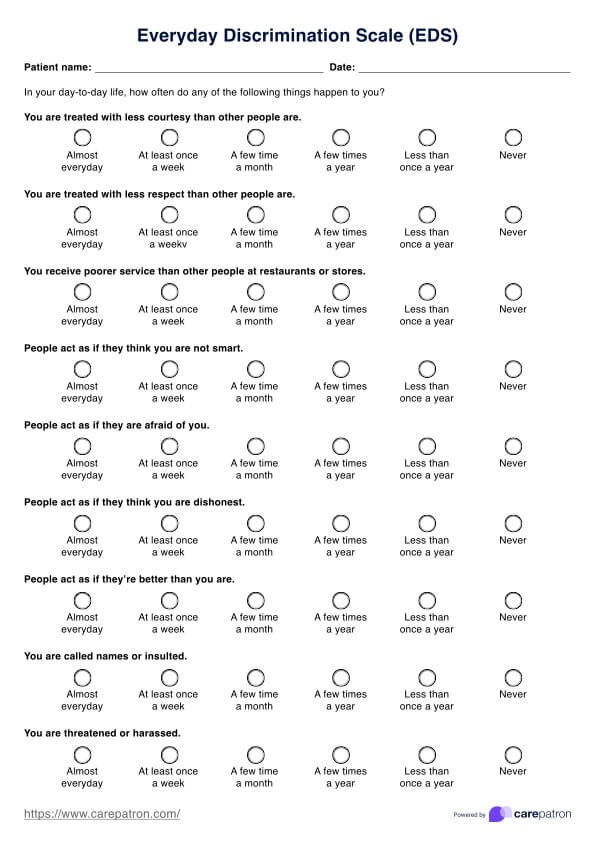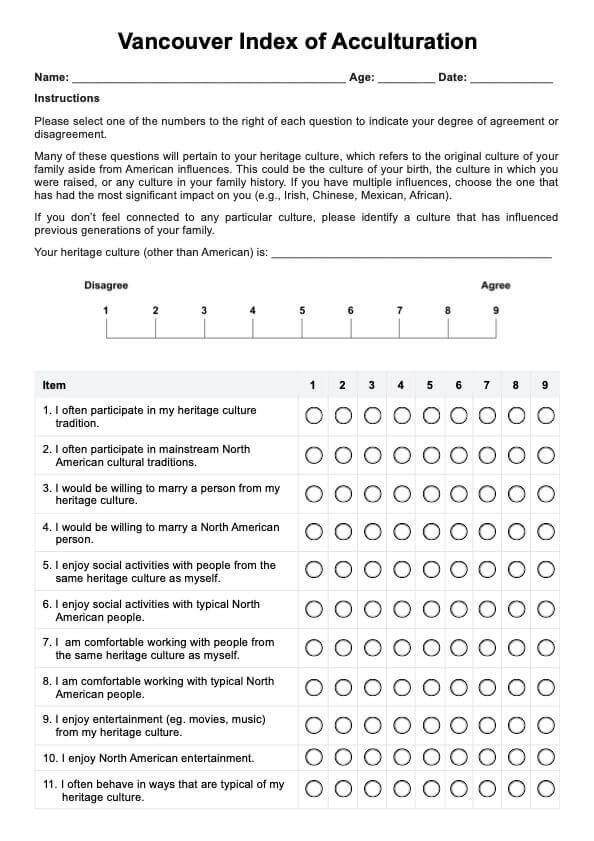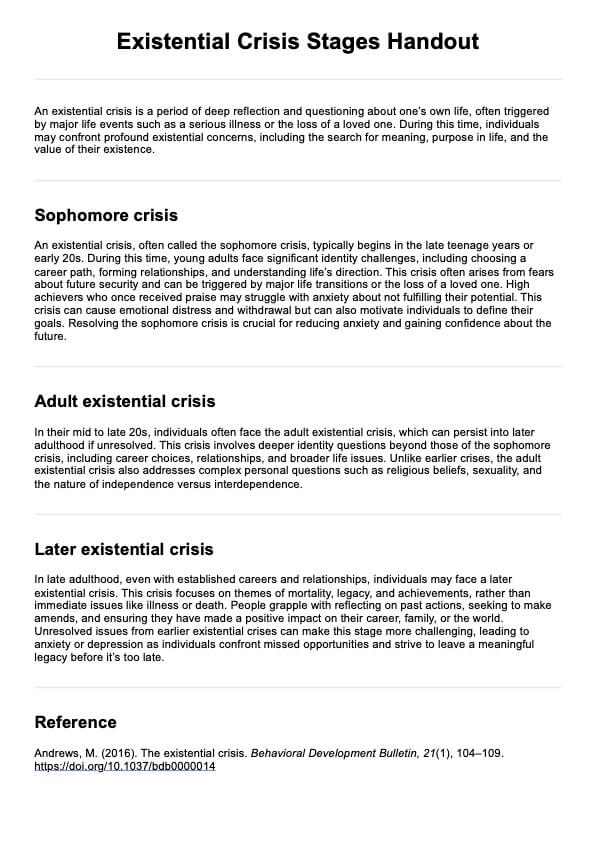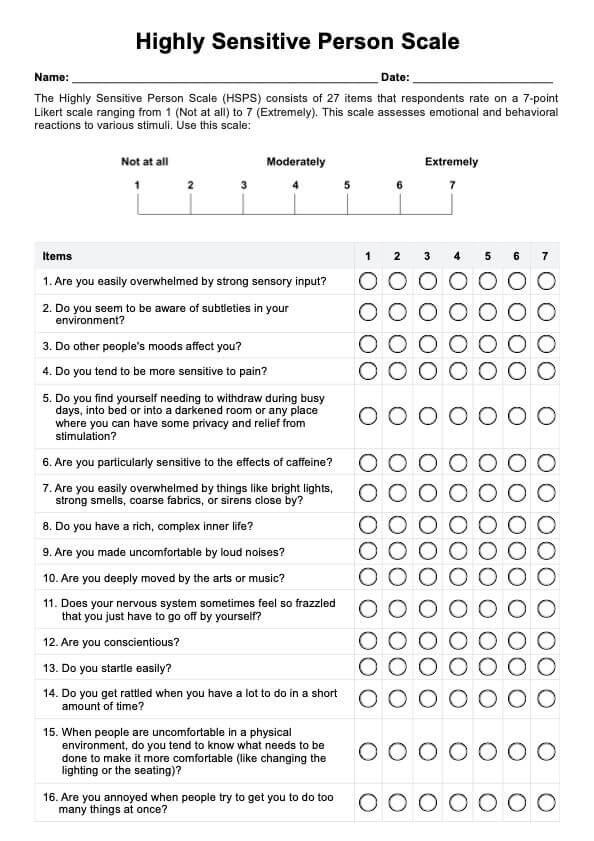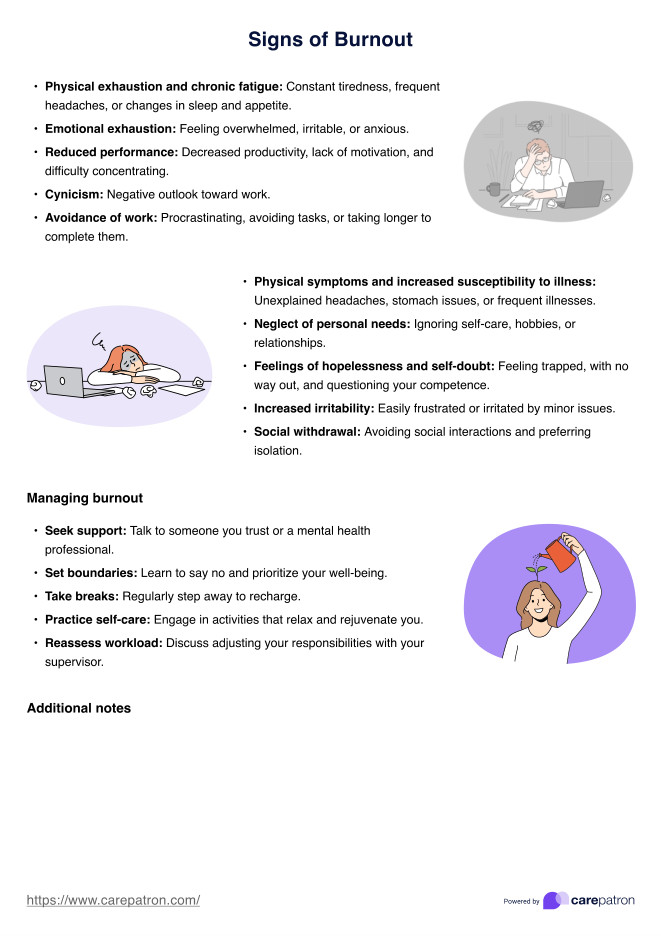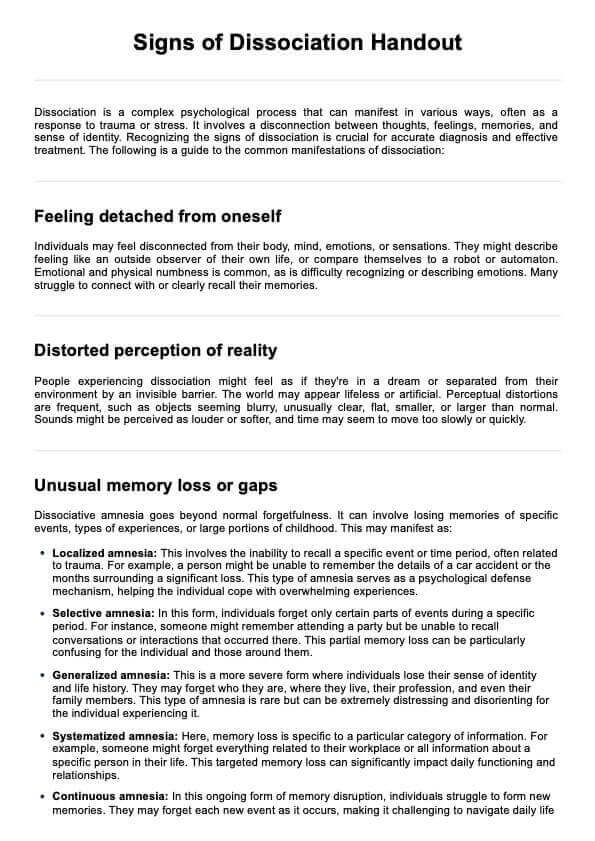Dizziness Handicap Inventory
Learn how dizziness can impact your patient's daily life. Download a free Dizziness Handicap Inventory to assess severity and help provide proper treatment.


Dizziness and disabilities
Dizziness is a prevalent sensation that can affect individuals of all ages, manifesting as lightheadedness, vertigo (a spinning feeling), unsteadiness, and loss of balance. Severe dizziness can significantly hinder a person's ability to perform daily tasks and may lead to disabilities.
This condition can cause mobility issues, increasing the risk of falls and physical inactivity. This risk is particularly pronounced in older adults (Lindell et al., 2019), where dizziness is linked to higher rates of functional impairment in daily activities.
Prolonged dizziness also often results in emotional distress (Soylemez & Ertugrul, 2021), such as anxiety and depression. Patients may develop a fear of falling, further limiting their activities and contributing to social isolation.
Dizziness Handicap Inventory Template
Dizziness Handicap Inventory Example
Symptoms of dizziness
Dizziness is a broad term that encompasses various sensations, and its symptoms can vary from person to person. Some may experience mild dizziness that subsides quickly, while others may have prolonged episodes or more severe symptoms. Common symptoms of dizziness include:
- Lightheadedness: A feeling of faintness or being on the verge of passing out.
- Vertigo: A spinning sensation in which the environment around you feels like it's moving.
- Unsteadiness: Difficulty maintaining balance or feeling as if you're about to fall.
- Loss of balance: A sensation of being off-balance or unable to stay upright.
- Nausea and vomiting: These symptoms often accompany vertigo.
Causes of dizziness
Dizziness can result from various underlying conditions, including:
- Inner ear disorders: The inner ear plays a vital role in maintaining balance and can be affected by infections, inflammation, or damage.
- Cardiovascular problems: Dizziness may be a symptom of heart-related issues such as low blood pressure or an abnormal heart rhythm.
- Neurological disorders: Certain neurological conditions like migraines, stroke, or multiple sclerosis can also cause dizziness.
- Medications: Some medications have dizziness as a side effect, particularly those used to treat high blood pressure or anxiety.
What is the Dizziness Handicap Inventory (DHI)?
The Dizziness Handicap Inventory (DHI) is a 25-item clinical instrument designed to evaluate the self-perceived handicap caused by vestibular disorders. It is a valuable tool in the assessment and management of patients with various vestibular diagnoses, such as benign paroxysmal positional vertigo and peripheral vestibular impairment. The DHI helps quantify the impact of peripheral vestibular dysfunction and conditions like persistent postural perceptual dizziness on a patient's daily life.
The inventory considers physical, emotional, and functional aspects of dizziness, providing insights into the severity of the handicap. Scoring is based on allocating 4 points for "yes," 2 points for "sometimes," and 0 points for "no."
The DHI total score ranges from 0 to 100, with higher scores indicating a greater perceived disability. Patients who score above 10 points should be referred to balance specialists for further evaluation.
Dizziness Handicap Inventory scores can indicate whether a patient experiences a mild handicap or a more significant vestibular handicap. These scores often correlate with other objective vestibular tests, such as the vestibular rehabilitation benefit questionnaire, and can be statistically significant when assessing the presence of psychiatric disorders alongside vestibular issues.
For patients undergoing vestibular rehabilitation, the DHI offers a way to track changes in self-perceived handicap over time. In cases of structural disorders, vestibular neuritis, or vestibular migraine, the DHI scores are pivotal in measuring the effectiveness of therapeutic interventions and guiding the course of treatment.
How to use or Dizziness Handicap Inventory template
Carepatron has created a user-friendly Dizziness Handicap Inventory template to make it easy for your patients to complete and for you to document results. Here's how to get started:
Step 1: Get a copy of the inventory
Download the DHI template using the link on this page. You may also get it from the Carepatron app or our resources library.
Step 2: Print or use the digital version
You can print out the inventory and hand it to your patients or use the digital version. Using a digital version allows you to easily transfer results into patient records.
Step 3: Explain the purpose of the inventory to your patients
Make sure to explain why you are using this inventory, how long it will take, and how their responses will help with treatment planning.
Step 4: Review and save completed inventories
Once your patient has completed the DHI, review their responses and score their results. Save these results in your patient's records for future reference.
Benefits of using the DHI template
Our Dizziness Handicap Inventory template offers several benefits for both patients and healthcare providers:
- Easy to understand: The inventory is designed with simple language and clear questions, making it easy for patients to complete.
- Saves time: With the template already prepared, healthcare providers can save time on creating their own inventory or questionnaire.
- Accurate results: The scoring system ensures accurate results that can help with treatment planning and referral decisions.
- Consistency: Using the same inventory for all patients allows for consistency in evaluating dizziness symptoms and tracking progress over time.
- Portable: The digital version of the inventory can be easily accessed and completed on a smartphone or tablet, making it convenient for both patients and healthcare providers.
Treatments for debilitating dizziness
Dizziness can have a significant impact on a person's daily life and functioning. Fortunately, there are various treatments available to help manage or alleviate dizziness symptoms, including:
- Vestibular rehabilitation therapy: Patients with vestibular disorders may benefit from a specialized exercise-based therapy designed to improve balance and reduce dizziness.
- Medications: In some cases, medications may be prescribed to manage specific symptoms or underlying conditions that contribute to dizziness.
- Lifestyle modifications: Changes in diet, hydration, and sleep patterns can help alleviate dizziness symptoms. Avoiding triggers such as caffeine or alcohol can also be helpful.
- Psychological therapy: Dizziness can often lead to anxiety and depression. Cognitive-behavioral therapy can help patients cope with these psychological effects of dizziness.
- Surgical procedures: In rare cases, surgery may be recommended for certain types of dizziness caused by structural issues in the ear or brain.
References
Lindell, E., Kollén, L., Johansson, M., Karlsson, T., Rydén, L., Zettergren, A., Frändin, K., Skoog, I., & Finizia, C. (2019). Dizziness and its association with walking speed and falls efficacy among older men and women in an urban population. Aging Clinical and Experimental Research, 32(6), 1049–1056. https://doi.org/10.1007/s40520-019-01303-6
Soylemez, E., & Ertugrul, S. (2021). Clinical characteristics of patients with dizziness according to the level of dizziness-related disability. Electronic Journal of General Medicine, 18(2), em275. https://doi.org/10.29333/ejgm/9693
Commonly asked questions
The Dizziness Handicap Inventory (DHI) is a tool designed to measure the self-perceived impact of dizziness on a patient's daily life especially for those with a vestibular disorder. It includes a series of questions that assess emotional, functional, and physical aspects related to dizziness.
Yes, the e Dizziness Handicap Inventory (DHI) can detect statistically significant differences in dizziness severity among patients. Moreover, the Dizziness Handicap Inventory correlates well with other clinical measures of dizziness severity and functional impairment, making it a valuable resource for healthcare providers in diagnosing and treating patients with various levels of dizziness.
Yes, the Dizziness Handicap Inventory (DHI) is frequently used in conjunction with other assessments such as the balance function test. These combination assessments provide a comprehensive view of a patient's condition, as the balance function test correlates well with the DHI, enabling healthcare providers to develop more effective and personalized treatment plans.


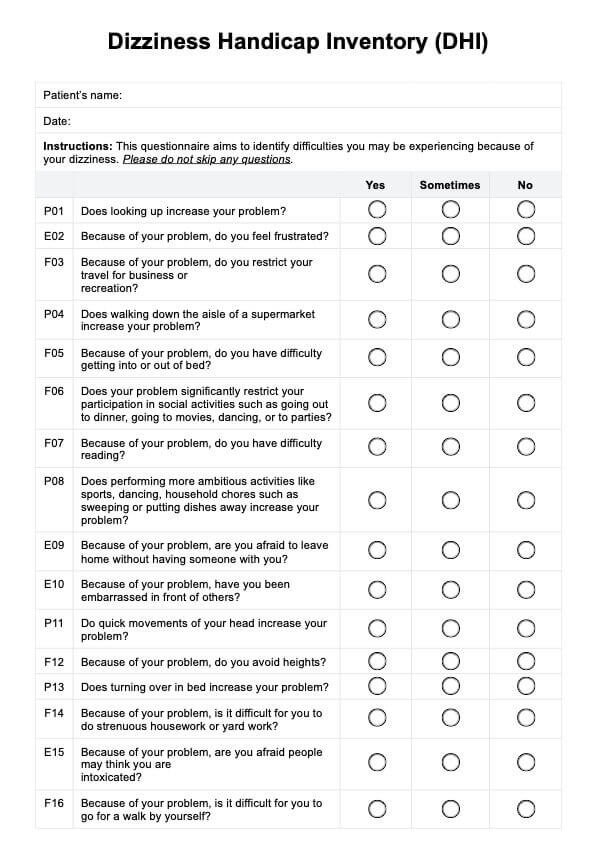
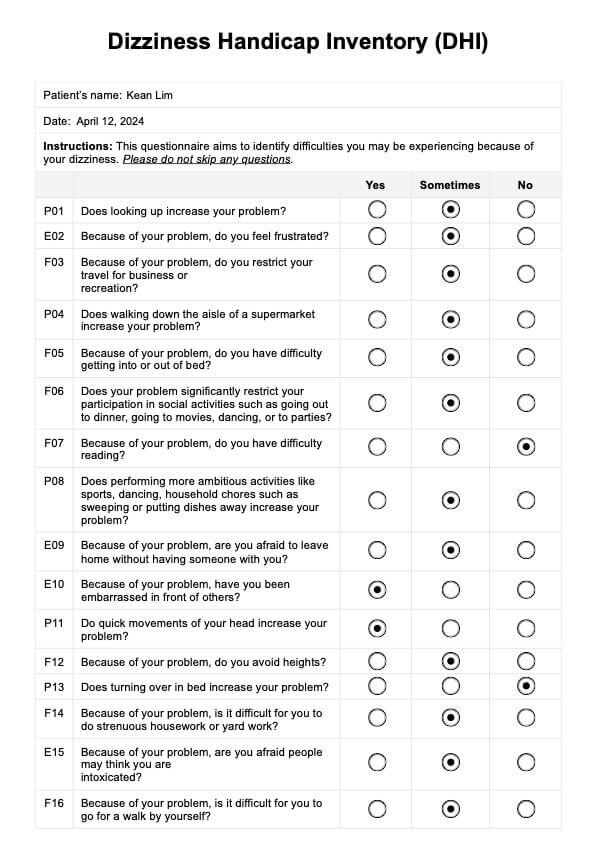



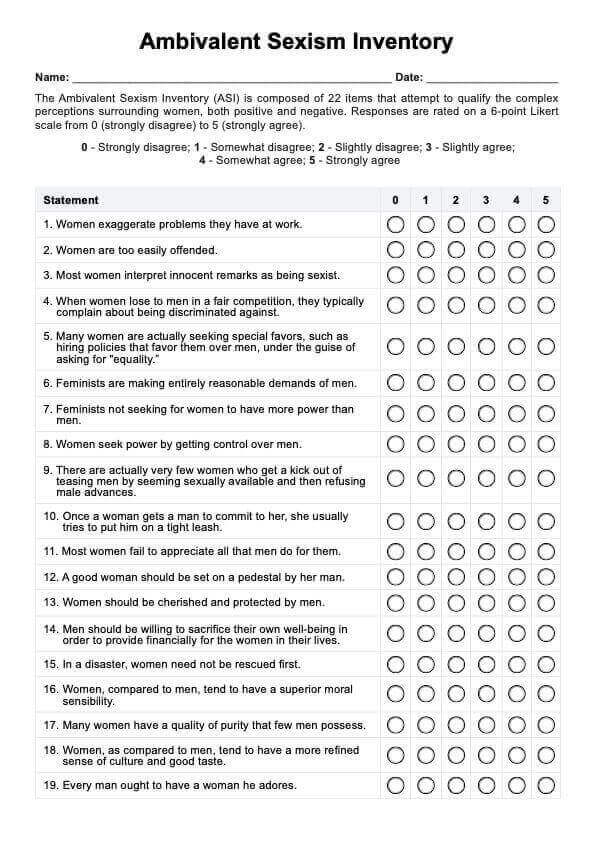









-template.jpg)
























































